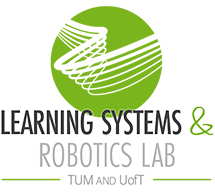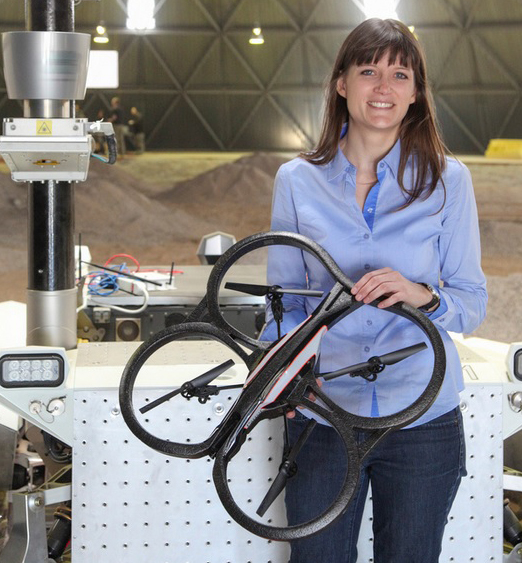Faculty
Prof. Angela P. Schoellig
Alexander von Humboldt Professor for Robotics and Artificial Intelligence
“I am excited about robotics, controls and machine learning, and any novel sensing and computing technology that enables us to design robotic systems that interact with the world and with us.”
Postdoctoral Fellows

Alexander von Rohr
Dr. rer. nat. Computer Science, RWTH Aachen University
Safe and robust reinforcement learning.
PhD Students

Alan Li
BASc Engineering Science, University of Toronto
Transfer learning in 6D pose estimation of objects from camera images.

Lukas Brunke
M.Sc. Mechatronics, Hamburg University of Technology
Safe learning-based control under uncertainties.

Adam Hall
BScEng Engineering Physics, Queen’s University
Exploiting properties of differentially flat systems to improve safe learning-based control.

Sepehr Samavi
MASc Aerospace Engineering, University of Toronto
Learned planning and control for navigating interactive scenarios (with Florian Shkurti).

Abhishek Goudar
MS Robotics Systems Development, Carnegie Mellon University
Sensor fusion for indoor localization on computationally constrained platforms.
$nbsp;

Federico Pizarro Bejarano
BASc Engineering Science, University of Toronto
Certification of the safety of model-free reinforcement learning controllers.

Martin Schuck
M.Sc. Electrical Engineering, TU Munich
Deep RL for robotics from high-performance simulation to real-world deployment.

Shambhuraj Sawant
MSc Mechanical Engineering, TU Delft
Safe reinforcement learning and model predictive control.
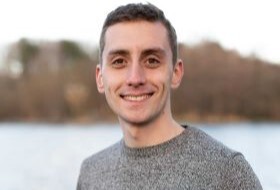
Ralf Römer
M.Sc. Electrical and Computer Engineering, TU Munich
Learning for vision-based planning and control using deep generative models.

Tsung Yuan Tseng
M.Sc. Robotic System Engineering, RWTH Aachen University
Efficient risk-averse Bayesian optimization for robot learning.

Oliver Hausdörfer
M.Sc. Mechatronics and Robotics, TU Munich
Deep reinforcement learning for complex robots and real-world interactions.
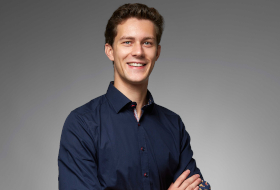
Benjamin Bogenberger
M.Sc. Electrical Engineering and Information Technology, TU Munich
Enabling robot safety through semantic environmental understanding.
Masters Students
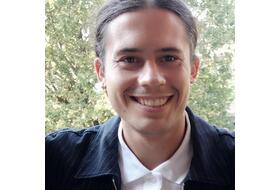
Nicoló Musolesi
B.Sc. Aerospace Engineering, University of Bologna
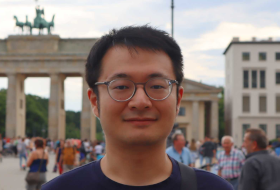
Mingxuan Che
B.Sc Mechanical Engineering, Beijing Institute of Technology
Quantifying Prior Knowledge in Learning-based Control and Reinforcement Learning.
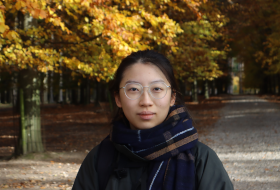
Yanni Zhang
B.Sc. Opto-Electronics Information Science and Engineering, Beijing Institute of Technology
Semantic safety filter for robot manipulation.
AutoDrive Challenge Students
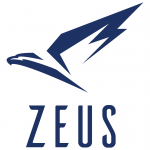
aUToronto Team
University of Toronto
Development of a self-driving car for the SAE/GM AutoDrive Challenge. Meet the AutoDrive team.
Former Students of the Dynamic Systems Lab
Postdoctoral Fellows
- Utku Çulha, 2025, “Physically adaptive robots and process automation.”
- Jacopo Panerati, 2022, “Safe learning-based control for robotics and physics-based simulation.”
- Karime Pereida, 2021, “Adaptive and learning controllers for high-accuracy trajectory tracking in changing conditions.”
- Mario Vukosavljev, 2019, “UAV swarms for robust task execution.”
- Mohammad Nahangi, 2019, “Autonomous UAV monitoring of the construction progress in indoor environments.” Coadvised with Brenda McCabe.
- Michael Warren, 2019, “Vision-based navigation of UAVs.” Coadvised with Tim Barfoot.
- Mohamed Helwa, 2018, “Control design for safety-critical systems; safe, online learning of robots; transfer learning in robotics.”
- Zachary Kroeze, 2018, “Localization, mapping, and control of an autonomous vehicle for the SAE AutoDrive Challenge.”
PhD Students
PhD Students
- Adam Heins, 2025, “Robust mobile manipulation for robotic pushing and nonprehensile object transportation.”

- Keenan Burnett, 2025, “Towards radar-based mapping and localization in all weather conditions.” Coadvised with Tim Barfoot.

- Wenda Zhao, 2024, “Accurate and robust ultra-wideband time difference of arrival localization for multi-agent systems.”

- Melissa Greeff, 2022, “Flying flat out: fast multirotor flight using vision-based navigation in real-world environments.”

- SiQi Zhou, 2022, “Neural networks as add-on modules for improved performance of robot control systems.”

- Thomas Bamford, 2021, “Application of unmanned aerial systems to blast monitoring in open pit mines.” Coadvised with Kamran Esmaeili.

- Chris McKinnon, 2021, “Reliable path-tracking control for ground robots in changing conditions.”

- Karime Pereida, 2020, “Adaptive and learning controllers for high-accuracy trajectory tracking in changing conditions.”

- Felix Berkenkamp, 2019, “Safe exploration in reinforcement learning: theory and applications in robotics.” Coadvised with Andreas Krause.

- Mario Vukosavljev, 2019, “Modular framework for motion planning based on feedback-based motion primitives.” Coadvised with Mireille Broucke.

- Chris Ostafew, 2016, “Learning control for vision-based mobile robot path tracking in outdoor environments.” Coadvised with Tim Barfoot.

PhD Exchange Students
- Veronica Chatrath, 2023, “Probabilistic object-level change detection and localization.”
- Juergen Scherer, 2019, “Multi-robot coordination for surveillance missions.”
- Andriy Sarabakha, 2018, “Online adaptation with deep neural networks for high-performance autonomous flight.”
Masters Students
Master’s Thesis
- Ralf Römer, 2023, “The Role of Control Frequency for the Stability and Closed-Loop Performance of Uncertain Systems.”
- Tsung Yuan Tseng, 2023, “Benchmarking Learning-Based Control and Reinforcement Learning.”
MASc Students
- Vivek Adajania, 2023, “Safe Motion Planning of Quadrotor Swarms in Cluttered and Complex Environments.”

- Jacob Ridgway, 2023, “Towards the Design of Small, Inexpensive, Cable-Driven Dynamic Quadrupedal Robots.”

- Shichen Lu, 2023, “Vehicle motion prediction using locally conditioned trajectory sets.”

- Justin Yuan, 2022, “Benchmarking reinforcement learning for safe robotics: constraints, robustness and transfer.”

- Sepehr Samavi, 2021, “Accounting for unpredictability in autonomous driving behaviour.”

- Wei-Kang Tseng, 2021, “Self-Calibration of the offset between GPS and semantic map frames for robust localization.” Coadvised with Tim Barfoot.

- Mingliang Tang, 2020, “Advances in heap leach pad surface moisture mapping using unmanned aerial vehicle technology and aerial remote sensing imagery.” Coadvised with Kamran Esmaeili.

- Jeremy Wong, 2020, “Data-driven parameter learning without groundtruth for improving robotic state estimation.” Coadvised with Tim Barfoot.

- Michael Sorocky, 2020, “System similarity, performance guarantees, and asymmetry in transfer learning for robotics.”

- Ke Dong, 2020, “High-speed motion generation for mobile manipulators.” Coadvised with Florian Shkurti.

- Filip Medinac, 2019, “Pit wall mapping and slope assessment using unmanned aerial vehicle (UAV) technology.”

- Keenan Burnett, 2019, “On the design and development of a self-driving car for the SAE AutoDrive Challenge.”

- Bhavit Patel, 2019, “Visual localization for UAVs in outdoor GPS-denied environments.”

- Carlos Luis, 2019, “Distributed trajectory generation for multiagent systems.”

- Rikky Duivenvoorden, 2016, “Quadrotor control in the presence of unknown mass properties.”

- Kaizad Raimalwala, 2015, “Transfer learning for robotics: can a robot learn from another robot’s data?” Coadvised with Bruce Francis.

- Chris McKinnon, 2015, “Data-driven, force-based interaction for quadrotors.”

Masters Exchange Students
- Michael Jakob, 2018, “Position and force control with redundancy resolution of mobile manipulators.”

- Andreas Schimpe, 2018, “Predictive and reactive planning and control designs for self-driving cars.”
- Julian Förster, 2018, “Disturbance prediction in a learning model predictive control context.”
- Dave Kooijman, 2017, “High-precision tracking in changing environments through adaptive feedback and iterative learning.”
- Yassine Nemmour, 2017, “Safe exploration in robotics using Gaussian process models.”
- Andreas Hock, 2016, “Distributed iterative learning control for multi-agent systems.”
- Felix Berkenkamp, 2014, “Learning-based robust control: robustness guarantees for learning systems.”

- Nicolas Degen, 2013, “Analytic comparison of norm-optimal iterative learning schemes.”
MEng Students
- Jingyuan Hou, 2018, “C++ simulator for the crazyflie quadrotors: overview, implementation, and usage.”
- Calvin Ngan, 2018, “Crazyflie drone platform and simulator.”
- Michael Burghardt, 2015, “State estimation for indoor-to-outdoor flight of a quadrotor UAV.”
Undergraduate Students
Undergraduate Thesis
- Ali Mahdavifar, 2020, “Dynamic motion model for model predictive controller of aUToronto’s autonomous vehicle.”
- Samee Mahbub, 2020, “Optimal velocity profile generation with acceleration and jerk limits for autonomous driving.”
- Mollie Bianchi, 2019, “Development of a simulation environment for testing autonomous vehicles.” Coadvised with Tim Barfoot.
- Nian Jia Hua, 2019, “Implementing dynamic object detection and tracking.” Coadvised with Tim Barfoot.
- Tianchang Shen, 2019, “Video lane segmentation with temporal fusion.” Coadvised with Tim Barfoot.
- Zheng Yao, 2019, “Autonomous parking in angled spaces: path planningand control.” Coadvised with Tim Barfoot.
- Zichen Huang, 2019, “System architecture of autonomous vehicle operating in urban environment.” Coadvised with Tim Barfoot.
- Jingxing Qian, 2019, “Motion planning for autonomous vehicles in urban driving environments.” Coadvised with Tim Barfoot.
- Arkady Arkhangorodsky, 2019, “Designing a system for real-time traffic light and traffic sign detection.” Coadvised with Tim Barfoot.
- Xintong Du, 2019, “On integrated motion planning and control approach for self-driving urban vehicles.” Coadvised with Tim Barfoot.
- Zheng Chen, 2019, “Optimal turn-by-turn directions on road networks.” Coadvised with Tim Barfoot.
- Omar Rasheed, 2019, “uToronto autonomous vehicle – mechanical and electrical hardware design and assembly.” Coadvised with Tim Barfoot.
- Adam El-Masri, 2018, “Simulation and experimentation systems for the AutoDrive challenge.”
- Zane Huang, 2018, “Implementing a mapping application for self-driving cars.”
- Ashkan Amirghassemi, 2018, “A robust stop line tracking algorithm for autonomous vehicles.”
- Yushi Guan, 2018, “Location searching and road path planning for autonomous vehicles with improved intersection handling.”
- Stewart Jamieson, 2018, “Deep learning for robust vision in real-time autonomous driving.”
- Kevin Jen, 2018, “Robust systems design for autonomous vehicles.”
- Chengzhi Liu, 2018, “Trajectory planning for autonomous vehicles in structured urban environments.”
- Sepehr Samavi, 2018, “Lane detection for an autonomous vehicle.”
- Aakash Goel, 2017, “Ballbot, an autonomous tennis ball collecting robot.”
- SiQi Zhou, 2016, “Transformation between kinematic point and unicycle model for leader-follower formulation problems.”
- Rakibur Rahman, 2016, “Analysis of the capabilities of the Intel RealSense camera.”
- Masha Itkina, 2016, “Towards multi-agent learning.”
- Spencer Richards, 2016, “Sensor fusion and state estimation for indoor-outdoor flight of an octocopter.”
- YihTang Yeo, 2016, “Controller design for quadrotors with cable-suspended payload for fire-fighting missions.”
- Adrian Esser, 2016, “Development of a programmable unmanned aerial vehicle for nuclear reactor face surveying.”
- Tristan Laidlow, 2015, “A framework for real-time motion generation for aerial vehicles in response to musical signals.”
- Xingbo Wang, 2014, “Physically interactive flying robots.”
- Andreas Pfrunder, 2013, “Visual teach and repeat for autonomous quadrotor flight.”
Professional Experience Year
- Xintong Du, 2018, “Crazyflie, multi-vehicle flight testbed.”
Summer Internship
- Aoran Jiao, Anna-Mariya Korol, Sanjmi Khurana, Tanmay Patel, 2023.
- Michelangelo Fantini, Xinyuan Sam Qiao, Allen Tao, Spencer Teetaert, 2022.
- Dhruv Sirohi, Hshmat Sahak, James Xu, Kohava Mendelsohn, 2020.
- Muralidhar Andoorveedu, 2019.
- Stephanie Marton, 2018.
- Qiyang Li, Yizhou Huang, Quinlan Sykora, Xintong Du, 2017.
- Qiyang Li, Zining Zhu, Xuchan Bao, Jingxing Qian, Adrian Esser, 2016.
- Adrian Esser, Yilun Wu, 2015.
- Yuqing Tang, SiQi Zhou, Natasha Dalal, Rikky Duivenvoorden, Tristan Laidlow, Xingbo Wang, 2014.
- Jai Bansal, Ahmed Khan, Behzad Abghari, Tristan Laidlow, 2013.
Team Photos
